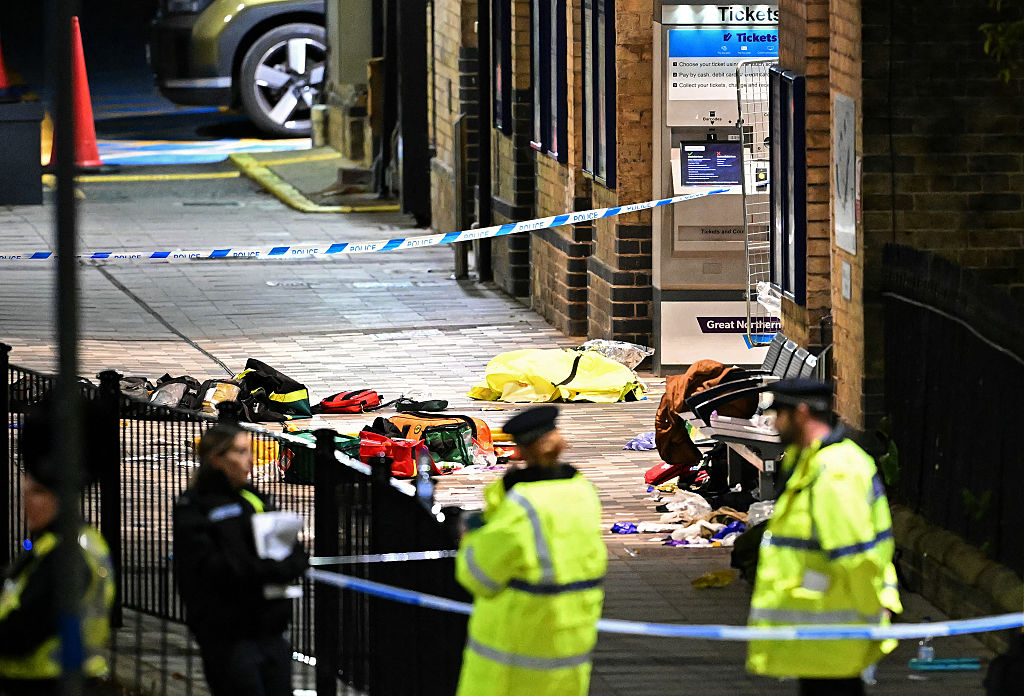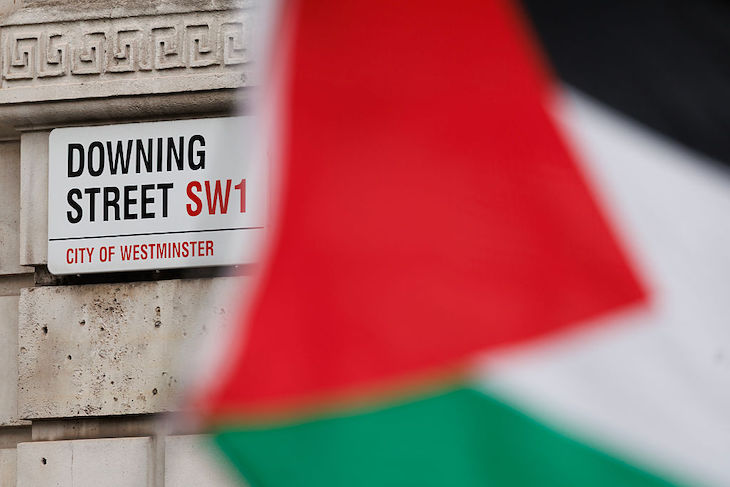After the very latest mass casualty attack on Saturday night, on a busy London North Eastern Railway train in Huntingdon, police and government quickly told us not to speculate about the motives of the alleged attacker.
Eleven people were hospitalised in the attack, with one in a critical condition at the time of writing. It’s hard not to speculate when a banal experience most of us are familiar with – a train journey – is brutally upended in this way.
It is hard to ignore the fact that we are seeing more and more people with no ideology resorting to extreme, often spontaneous violence
But we must stop there, apparently, to be told by some politicians that the enemy is not the maniacs who increasingly threaten us but the danger of speculating about their motives.
While counter terrorism police were initially supporting the Huntingdon investigation, we are now assured by the British Transport Police that, as with the Southport massacre, terrorism is not suspected. Terrorism in this country has a narrow definition which is centred around acts of violence for a political, religious, racial or ideological cause.
But the dead and maimed are just as dead and maimed. And people are terrorised by the nature and frequency of mass casualty incidents. In the last five years across Britain and Ireland there have been at least 24 attacks that have resulted in four or more casualties – fatalities and injured – ranging from mass shootings, mass stabbings, to mixed-method spree attacks. Only one, the murderous attack on a Manchester synagogue, has been ascribed a terrorist motive.
It is hard to ignore the fact that we are seeing more and more people with no ideology resorting to extreme, often spontaneous violence.
The fact these types of terrorising attacks have no legal status is a problem because it has meant there are far fewer resources devoted to spotting and stopping them.
Take Valdo Calocane, a deranged mentally ill man who was utterly failed by a threadbare mental health system. Errors, omissions and misjudgements by professionals involved in his care failed at every level and allowed him back on the streets of Nottingham to murder three people.
Or Alex Rudakubana, whose descent into becoming a serial child killer happened under the noses of multiple agencies with a staggering absence of professional curiosity. Concern about his behaviour was dismissed as ‘racial profiling.’
The rules of sub judice, which limit what the press and public can say about a live case, work in favour of those who want as little fuss about these outrages as possible. It means the act and its legal consequences are separated by months. By the time it reaches court, in all probability that memory will be overwritten by another senseless atrocity. But I fear that the number and pace of these awful incidents is having a cumulative impact on the population at large. How could it not?
We can no longer respond to these atrocities with hearts and flowers. And we can no longer be told by the state not to be curious about how and why they are happening with more frequency. That is the surest way to radicalise the population. Far too many people no longer trust the state to protect them and their families. The social contract is breaking down.
We need to have a better response to these incidents. That should involve a recalibration of resources and people into a single national agency charged with managing very high-risk people before, during and after custody.
In many cases, people who are convicted of mass casualty attacks have a long history of other forms of violence. Very often they will have been previously convicted of domestic and other forms of sexual violence and the possession of child abuse pornography, although we don’t know anything about the alleged attacker on Saturday.
It is essential that we intercept these people before more mass killings take place. There will be issues with civil liberties. But the people on Saturday’s train deserve liberty too. They deserve to be able to travel on a train on Saturday night without horrendous physical and psychological damage.
It is the state’s responsibility to accept that responsibility and meet it. Police, passengers, paramedics and train staff all responded magnificently on Saturday night. It took eight minutes from the first panicked 999 call to officers taking the suspect into custody. But in any civilised society, this can’t be the benchmark of success. We have to get ahead of these offenders. Many are hiding in plain sight.







